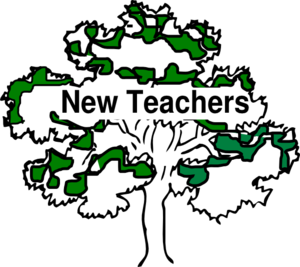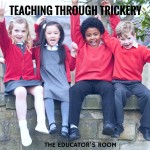[fusion_builder_container hundred_percent=”yes” overflow=”visible”][fusion_builder_row][fusion_builder_column type=”1_1″ background_position=”left top” background_color=”” border_size=”” border_color=”” border_style=”solid” spacing=”yes” background_image=”” background_repeat=”no-repeat” padding=”” margin_top=”0px” margin_bottom=”0px” class=”” id=”” animation_type=”” animation_speed=”0.3″ animation_direction=”left” hide_on_mobile=”no” center_content=”no” min_height=”none”]
Last week my credential program invited me to come speak to the current teacher candidates about my experience as a student teacher and transitioning into full-time teaching. Now, this is kind of bizarre for me – who am I to tell these people about teaching? I mean, I just started this profession! Nevertheless, it got me thinking about my practice, and what was meaningful for me from my credential program.
I was emailed the following prompts to think about in preparation for my visit, and I am sharing my answers with you. Upon reflection, I realized that I’ve actually learned a lot from my first term as an Official Teacher, and that I had greatly under- and overestimated elements of this career.
Describe one of your “high” points and one of your “low” points during your final semester of student teaching. What did you learn from these experiences?
I’m going to start with my low point, because I like saving the best stuff for last. During my final semester, I took over entirely a senior government class. Government is my passion, so I was all about this. I had a lot of freedom to develop curricula and try new ideas with my students. But I soon experienced a lot of resistance; so much so that most of them refused to even try answering the questions I had written for their second exam. I kid you not, they just left them blank. There was even this group of four guys who tried transferring out of my class because I’m “too hard.” It was really difficult and emotionally trying, because I was investing a lot of myself into this class, and I thought they would be all about doing things differently and awesomely.
There were times when I considered easing up, or going to more of a “sage on the stage” teaching style that would be more familiar to them. But no – I know why I’m doing what I’m doing! I stuck to my guns, and here’s where a high point comes in: that last day of school was amazing. I noticed that gradually students had come around to my way of doing things, and they were rising to the challenge. That last day, so many told me that the class actually had an impact on them, and they really enjoyed it. Some even wanted to pursue political science in college.
This whole experience really taught me to be cognizant of why I’m doing what I’m doing, and to stick to it if I have strong reasoning behind it. Teaching is oftentimes delayed gratification: you aren’t always teaching the person in front of you, but the person that he/she will become. And sometimes you need to play Parent and do what’s best for Future Them.
Describe your first week of being the official teacher of record. What was the most surprising? What was the easiest? What was the most difficult?
I was so nervous about my first day of school. This is it! I’m in the Big Leagues! I put so much pressure on myself to make a good impression on my students and colleagues – but it ended up being really chill. So chill, in fact, that I didn’t feel any pressure or nervousness for the first day of second term earlier this month. I guess it was surprising, then, how easy the transition ended up being from Student Teacher to Official Teacher – at least in this regard. I was fortunate that my mentor teachers last year had given me freedom to run my own classroom that the only new thing in August was full access to student records and gradebooks.
The most frustrating thing, though, is that students tend to change their schedule a lot during that first week, so there was a lot of dealing with returned textbooks, edited gradesheets, and acclimating new students. I tend to move quickly through content in my classes, so I had to develop a system to collect make-up work from these newbies and make sure no one is at a disadvantage.
What I didn’t anticipate, though, is how lonely Official Teaching can be. As a student teacher, you have a built-in support network via your mentor teachers, university supervisor, professors, and credential colleagues. I work best by talking out ideas, so I benefitted greatly from all these people available to help me. However, I found in my first term of teaching that I really had to create a network for myself. A lot of my fellow teachers are busy with their respective classes and lives, so I can’t always bond with them – and I can only bug my husband so often! What I’ve done, then, is stay in touch with some of my credential friends who share a similar teaching philosophy; found community in other places, such as online forums (The Educators Room!); and made use of my BTSA coaches (California’s induction program). I’m also constantly looking for opportunities to continue professionalizing myself and meeting similarly-minded people: I attended the Teachers 4 Social Justice conference this year, and I’m applying for a NEH Summer Institute on education philosophy.
Name one thing that was covered in the credential program that you use regularly. Is that surprising?
Besides my friendships… I’m actually a very theory-based person, so I’ve used a lot of the readings on social justice education to inform my practice. I have the PDFs saved on my computer (as well as my response papers and I-Search paper), and I will occasionally revisit them for an opportunity to reflect on my current classroom practice. I’ve also used a handful of the social science resources we were exposed to during the program, such as Brown University’s CHOICES curriculum and iCivics. All in all, it was beneficial to pay attention to both the abstract and the concrete during my credential program, as I took something from both of those.
What did you focus on in the credential program that turned out to be exactly the thing to focus on? What do you wish you had paid more attention to while in the credential program?
Admittedly I ended up phoning in some of my I-Search (research) paper at the end of the program. There was a lot going on between student teaching, PACT (California’s teacher assessment), and getting a job, that schoolwork fell lower on my priority list. I’m really happy, though, that I used it as an opportunity to focus on means of student empowerment; I’ve revisited that literature a handful of times since. I just wish that I had put more effort into creating a stronger, more thoroughly-researched paper. So I think I focused on exactly what I should have, but I wish I did more with the topic.
Advice for maintaining balance between the demands of student teaching, course requirements and the PACT Teaching Event.
Be organized! (I know; easier said than done.) Come up with a system that works for you. I’m crazy, and had a thematically-organized to-do list going on in the back of my notebook. I would establish a routine: I’d get X done on Sundays, Y on Mondays, etc., and it was fairly predictable week-by-week. I did admittedly put more brain energy into my teaching compared to anything else – but that is, after all, why I was in the credential program to begin with.
Also, try your best to get your PACT done before the actual deadline: I actually got mine ready for submission about a week before it was due, as I knew I had an application I wanted to submit that week, and I didn’t want to kill myself over lesson-planning on top of everything else. It in turn freed up time for those other priorities, and gave me breathing room to come back and see it before I actually sent it off.
But the best piece of advice I have is to take advantage of the friendships you’re making at the credential program. It is so beneficial to share stories, talk out ideas, and support each other in all these requirements. And if you find the right people, you can keep those friendships after the program as you make the transition in to Official Teaching.[/fusion_builder_column][/fusion_builder_row][/fusion_builder_container]



